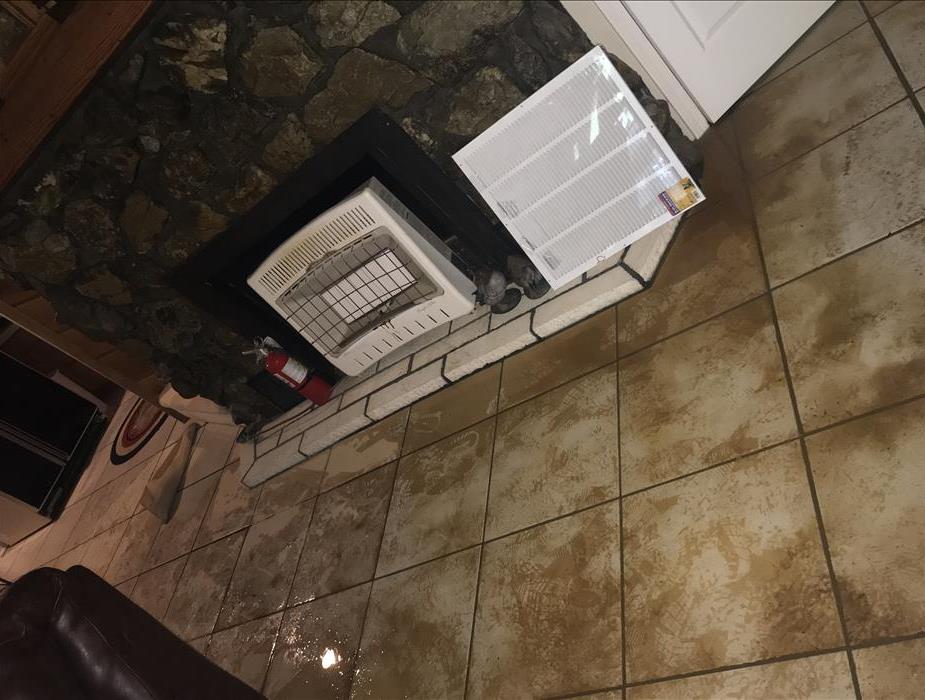We're In Hot Water Now!
11/10/2021 (Permalink)
Here at SERVPRO, we have seen the destruction a busted hot water heater can do to your home. Recently, we responded to a massive water loss caused by a leaking hot water heater underneath a staircase. The water traveled out of the staircase closet and into the basement den, two bedrooms, and second kitchen.
Since the homeowners spent most of their time upstairs, the hot water heater poured water into the basement of their home for hours undetected. SERVPRO promptly extracted all of the water from the entire lower level of the home. Afterward, the area required several days of drying to be thorough.
We hope this is something you and your family never have to experience! Here are just a few hot water heater safety precautions to follow that may prevent you from having a similar fate.
- Eliminate Fire Hazards
- Hot water heater tanks are quite large and not so pretty to look at. For our convenience, most hot water heater tanks are tucked out of sight. It is very tempting to use the extra closet space or area surrounding the hot water heater for additional storage. However, that is a recipe for disaster. If you have a gas water heater you should remove anything and everything near the water tank that is combustible. Never store anything like coats, jump ropes, garbage, or canisters of gas anywhere near your water heater. One crack in the water heater or a leak of fumes can form a chemical reaction. Combined with flammable materials can lead to a devastating disaster!
- Properly Ventilate Your Hot Water Heater
- Vents that are not installed properly can cause fumes to travel throughout your home. Vents with improperly placed drafts or ducts can also cause fumes to funnel into your home rather than ventilate outside. It is important to make sure that your water heater vents are dip-free, that they are the same diameter as the tank’s diverter, that the vents are properly screwed in, and pointed in the right direction.
- Test Your T&P Relief Valve Regularly
- What is a T&P Relief Valve? T&P is short for temperature and pressure. The T&P Relief Valve was created to prevent your water heater from exploding if the temperature or pressure of the tank increases greater than a safe amount. Residential valves tend to fail, so it is wise to check your T&P Valve at least once a year. A faulty valve can result in tragic combustion. The explosion can result in extensive damage to your home, or more importantly, resulting in harm to you or your family.
- Purchase A Carbon Monoxide Monitor
- As previously mentioned, if your hot water heater is not properly ventilated it can also cause fumes to leak into your home. Gas water heaters should always be accompanied by a carbon monoxide monitor. Carbon monoxide poisoning is a colorless and odorless gas that silently kills many people each year.





 24/7 Emergency Service
24/7 Emergency Service
